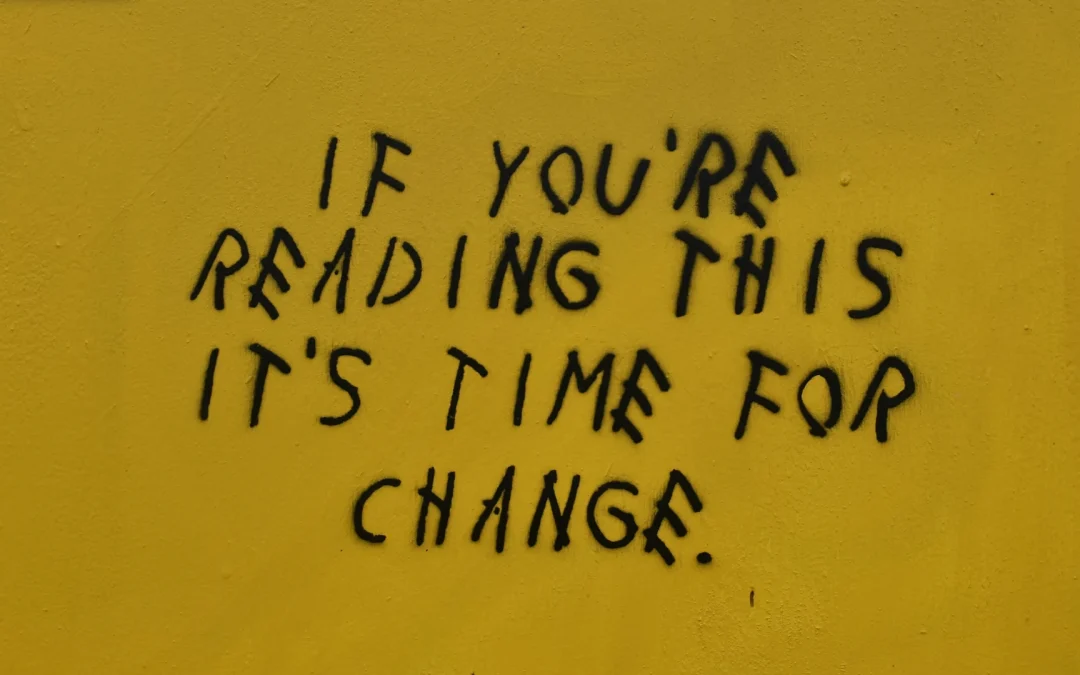Imagine it’s Christmas Day. Your family is gathered around the dinner table—laughter, stories, the clatter of silverware on plates. But your sister isn’t joining in. She has just returned home from college out of state. You notice how quiet she is, detached from the conversation, pushing tiny pieces of food around her plate but not eating. And she’s visibly thinner than the last time you saw her.
Or picture yourself hanging out with your friends in a public setting, and you notice one particular friend who’s displaying characteristics of someone in a moment of intense social anxiety. They’re nervous around everyone, unable to make and sustain eye contact. Their heart rate is elevated, and sweat begins forming on their brow. You see them tapping their fingers and feet, and looking around for a possible exit strategy.
Maybe it’s your mom. She’s been withdrawing lately. Her smile is rare, her laughter absent. She gets through the day, doing what’s expected, but the light that once radiated from her is dim. Nothing seems to bring her joy anymore.
In each of these scenarios, something inside you whispers, Something isn’t right. That internal nudge—the gut feeling you just can’t shake—is there for a reason. The question is: What do you do with it?
Too often, we do nothing. We’re afraid of overstepping. Afraid of saying the wrong thing. We hope someone else will speak up, or that the person will come to us for help. Meanwhile, someone we love is silently waiting—hoping someone will notice and care enough to ask, “Are you okay?”
As a counselor, I’m often asked: “How do I approach a friend or family member who needs help?” It’s a complex question with no one-size-fits-all answer. But some universal principles can guide us when someone we care about is struggling. The worst thing we can do is stay silent.
Six Helpful Hints For Helping A Loved One Who Is Struggling
1. Start with Prayer
Prayer grounds us and reminds us that we are not alone in this moment. If you’re feeling unsure or afraid of saying the wrong thing, ask the Holy Spirit to speak through you. I pray this simple prayer before every client session: “Lord, let these be Your words, not mine.” Trust that God will guide you in love and wisdom.
2. Examine Your Motivation
Ask yourself why you want to speak up. The answer, if it’s rooted in love, is enough. You’re reaching out because you care and don’t want to see someone you love in pain. Make that clear: “I’m coming to you because I care deeply. I want what’s best for you.”
3. Prepare Your Thoughts
Before approaching your loved one, take time to reflect. What are your main concerns? What have you observed? Rather than listing every worry, focus on one or two key issues that encompass your concerns. This keeps the conversation clear and intentional.
4. Expect a Range of Reactions
Responses may vary—denial, defensiveness, anger, avoidance, fear, or even humor to deflect discomfort. Some may be shocked that their struggle is visible at all. Let them react. You’re not there to win an argument, but to open a door. You might say:
“I understand this may be hard to hear. I care too much to stay silent. You don’t have to go through this alone.”
5. Stay the Course
Change takes time. Your loved one may not be ready to accept help immediately. That’s okay. Your conversation plants a seed—they now know someone sees and cares for them. Keep the door open. Check in again. Don’t let one difficult moment close the opportunity for healing.
6. Know When to Involve a Professional
Some situations require more than what you can offer. If you believe someone is at risk of harming themselves or others, seek professional help immediately. If you’re unsure, consult a therapist. If there’s any question of immediate danger, call 911 or your local emergency number without hesitation.
It only takes one person. One person to step out of their comfort zone. One person to ask the hard question. One voice to say, “You matter.”
A Final Thought
Imagine… It’s a Friday night at your local (and very busy) grocery store. Cars are going in all different directions, and the parking lot is crowded. The drivers seem lost in their thoughts. As you go inside and reach for a cart, something catches your eye. It’s a little girl with her mother, standing right outside the store on the sidewalk. With all the hustle and bustle, it’s obvious that no one else seems to have noticed this mother and daughter pair. For some reason, you stop to watch. As you watch them prepare to head to their car, you see the mother stop and look down into her purse for her keys. You realize that the little girl has not stopped walking, but that she is heading straight for the busy parking lot.
All alone, she walks ahead, not noticing the car coming right at her. What do you do? Without thinking, you run after the little girl and stop the traffic. You yell. You flail your arms in warning. You get the mom’s attention. You do whatever you need to do to save that little girl. No questions asked. It doesn’t matter what else is going on in that moment… You do whatever it takes to save her.
Fast forward… now that little girl has an eating disorder, poor body image, no self-worth, a cutting problem, alcoholism and/or drug abuse, suicidal tendencies, anxiety, depression, or some other struggle. Are you going to sit back and watch, letting the traffic run into her, or are you going to step in and do something to help save her?
If you or someone you love is struggling, I’m here to help. You can reach me through my website, SacredHeartMentalWellness.com. Consider purchasing a copy of my book “The Catholic Guide Through Anxiety” for more information on understanding and working through anxiety. (Available on my site and Amazon.) I wrote the book specifically to help those who experience anxiety, as well as those whose family members and loved ones experience it and want help from the Catholic perspective.
P.S. You are enough. Have the courage to speak up.
Image: Photo by christopher lemercier on Unsplash












